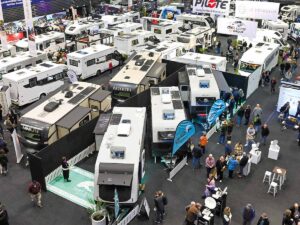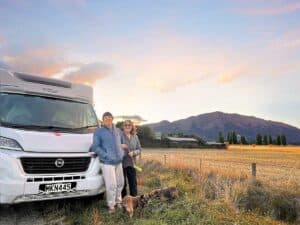Having the freedom to go wherever the road may take you is one of the great benefits of traveling by motorhome or caravan.
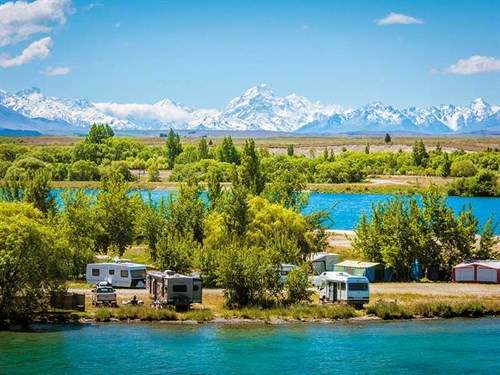
And for many of us, that road often leads us to parts of New Zealand we’d never normally visit—the tiny townships and lesser-known regional areas often overlooked by tourists.
Recognising the reciprocal benefits of motorhomers going beyond the usual tourist centres and into the regions, in 2010, the New Zealand Motor Caravan Association (NZMCA) launched the Motorhome Friendly Towns (MHF Towns) scheme to encourage members, and other motorhome travellers, to discover New Zealand’s roads less travelled.
The goal of the scheme was to create an ‘off the beaten track’ tourist network with the amenities and services to provide visitors—both New Zealanders and international tourists—with a welcoming and enjoyable stay.
Since 2014, the NZMCA has invested more than $1.3 million and committed significant resources to encourage travellers into MHF Towns within the scheme.
For towns to become Motorhome Friendly, they need to meet a checklist of criteria including having a legally compliant freedom camping bylaw and a council-owned public dump station with access to potable water.
A win-win for all involved
The key benefits of motorhomers spending more time in regional townships are clear. Travellers are discovering some of New Zealand’s lesser-known spots and are embracing all they have to offer—the friendly locals, beautiful parks, rivers and scenery, unique shops and cafes, and worthy community projects such as tree planting that they can get involved in.
The NZMCA also promotes upcoming the towns or event promoters. Not only does this take the pressure off tourist hotspots already struggling to cope with demand but it also gives smaller townships and regional areas a vital boost to their economy.
Motorhomers are spending their holiday dollars at local supermarkets, restaurants, gas stations, and attractions and often referring friends and other travellers to visit and do the same.
Small towns, big hearts
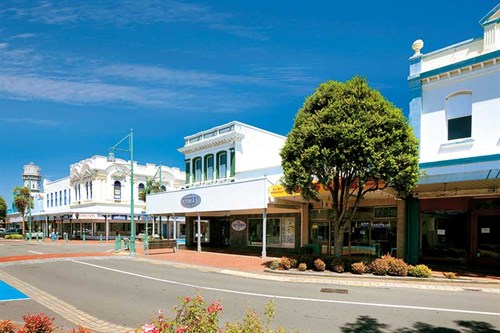
MCD contributor Jackie Norman, who recently fell in love with Gore—the southern-most Motorhome Friendly Town—is typical of many motorhomers keen to explore new ground.
“We never expected anything from Gore, yet we got so much more than we ever anticipated.” she says.
“We certainly didn’t predict we’d still be there three months later! Most people think of places such as Queenstown and Franz Josef as ‘the’ winter destination but not us. The warm heart of this southern town well and truly won us over.”
Partnering with DOC
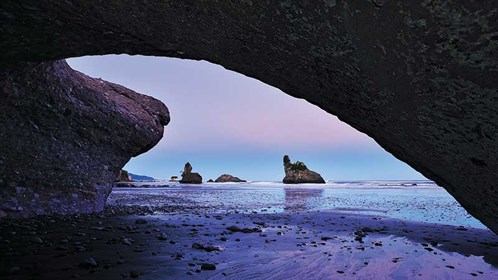
The association also works with the Department of Conservation (DOC) to promote its lesser-known campsites.
For a fee of around $180 per year, NZMCA members can purchase a DOC/NZMCA Campsite Pass, which allows members to camp at motorhome and caravan accessible campsites without paying the per person overnight fee.
DOC has around 170 motorhome and caravan accessible sites, and the NZMCA has worked alongside the department to shine the light on some of the lesser-known sites, helping ease the load on those that are often heavily populated and encouraging travellers to enjoy more of New Zealand’s fabulous (and often much quieter) camping sites.
A new campaign from Tourism New Zealand
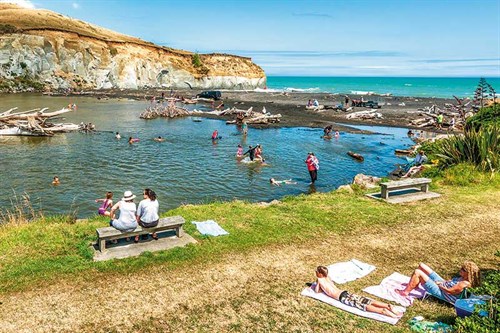
Recently, Tourism New Zealand launched a campaign to encourage tourists to explore the country’s regions and townships.
With the campaign expected to reach millions of people across the world considering New Zealand as a potential holiday destination, NZMCA CEO Bruce Lochore describes it as a ‘goldmine’ for the regions.
It’s very satisfying to see the goals we set many years ago come to fruition with Tourism New Zealand’s new campaign.
Caring for our golden goose
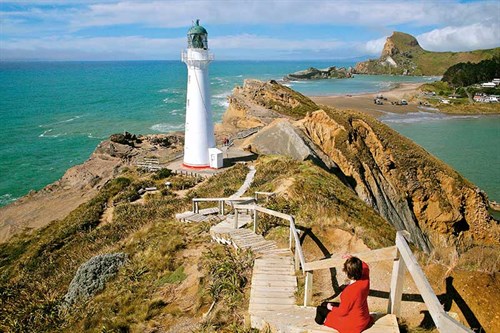
Motorhomers and industry professionals are in agreement—freedom camping is a privilege. And it’s one we can’t afford to lose. The economic benefits to regional New Zealand are just too significant.
But there’s also growing concern over the number of tourists who abuse this privilege by leaving their mess and not having self-contained facilities.
And with tourism numbers steadily increasing, the conversation around freedom camping is becoming louder by the day.
Recent changes to the self-containment standard now mean that only vehicles with a toilet that can be used, even with the bed made up, can be certified as self-contained, closing the loophole that allowed campers travelling in station wagons and people-mover type vehicles to become certified despite clearly not being able to contain their waste.
And while it’s good that the conversation around freedom camping rules is happening, Bruce warns against the possibility of any drastic changes to the Freedom Camping Act.
“As it is, the act works very well in enablingmotorhome tourists to spread out in the very areas that are the focus of Tourism New Zealand’s initiative.
“We need to keep the issue in perspective. When you actually look at where the problem is coming from, it’s clearly a small minority of freedom campers in non-self-contained vehicles.
“One of our concerns is that a ‘designated sites’ approach could develop,” Bruce says. “This would seriously put the economic benefits of this initiative at risk in these off-the-beaten-track locations.”
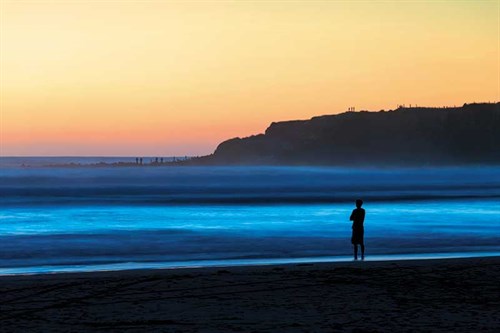
“We’ve also learnt that while the growth in tourism can be a great thing for everyone, it can’t be a free-for-all. Over the past few years we have come to understand there’s a ‘social licence’ with the regions that goes beyond the simple economic benefits that tourism offers.” Bruce says.
“For us that has meant backing up our promotional activities with hands-on assistance to councils in such areas as dump station installation, trialling and seeking solutions to the ongoing problem of rubbish disposal for travellers and a new initiative to fund and plant native trees on public sites."
To date, NZMCA has 47 MHF towns with several more due to come onboard in the near future.
Motorhome Friendly Town checklist
For towns to become MHF Towns, they must meet a checklist of criteria, including:
- A legally-compliant Freedom Camping bylaw
- A public dump station, Council-owned
- Access to potable water at dump station site
- Refuse and recycling facilities
- Access to medical facilities
- A general shopping area for groceries
- A vehicle service centre
To find a comprehensive list of the towns, along with details of events in the area, places of interest and a helpful directory, visit Motorhome Friendly Towns.

